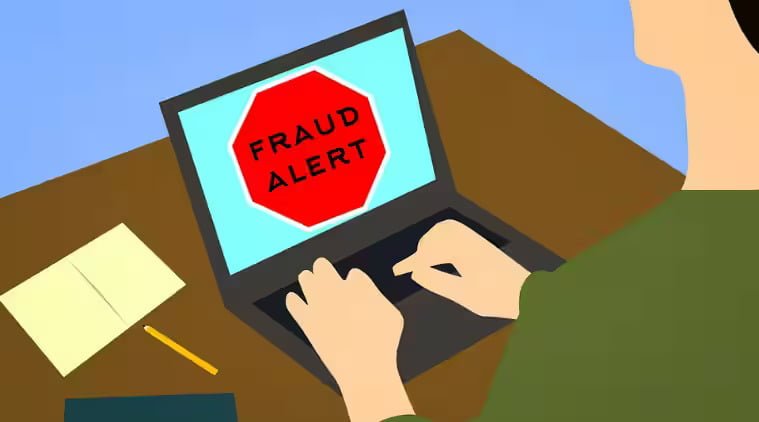Accidental Fraud:- The world of fraud is sometimes portrayed as a place full of sly schemers and devious con artists who create complex webs of lies to trick unsuspecting victims. On the other hand, not every fraudulent conduct is planned with bad intentions. A peculiar and sometimes perplexing occurrence is called "accidental fraud," in which people unintentionally become embroiled in a web of deceit without realizing what they are doing.

This piece will explore the fascinating realm of unintentional fraud, including its causes, effects, and preventative measures to keep you from inadvertently being involved in this dubious activity.
The Irregular Fraud Problem
Unintentional fraud is a strange occurrence in which people commit fraud without recognizing it is unlawful. It frequently happens as a result of ignorance, perplexity, or misplaced motives. Sometimes people who trust the wrong persons or groups end up unintentionally taking part in fraudulent activity. Typical instances include giving phishing fraudsters access to private information, unintentionally disseminating misleading material on social media, and participating in pyramid schemes without understanding the dangers.
Reasons and Effects
The reasons behind inadvertent fraud are as varied as the situations they involve. Lack of knowledge about such frauds or scams is one of the main causes. People are frequently duped by schemes that promise large returns with little to no work because they are curious or want to make quick money. It’s possible that they lack the expertise to recognize the warning signs.
Furthermore, erroneous information and the quick dissemination of incorrect information on social media platforms have greatly increased the incidence of unintentional fraud.
Individuals unintentionally aid in the spread of false information when they distribute postings that include deceptive information under the impression that they are doing so. This damages confidence in online groups in addition to causing financial losses.
Unintentional fraud can have far-reaching effects. Victims, particularly those who inadvertently engage in fraudulent activity, may suffer financial loss, become victims of identity theft, or face legal repercussions. They can lose a great deal of faith in establishments, peers, and internet platforms. Furthermore, discovering one has unintentionally engaged in fraud can have disastrous emotional effects.
How to Guard Against Inadvertent Fraud
Vigilance and education are necessary to prevent unintentional fraud. The following are some methods to keep your loved ones and yourself safe:
- Online, exercise caution: Examine websites, emails, and texts for legitimacy before sending sensitive information or opening links. Always create strong, one-of-a-kind passwords, and think about utilizing a reliable password manager.
- Become knowledgeable: Keep yourself educated about typical fraud and scams. You can find useful materials from agencies like the Federal Trade Commission (FTC) to identify such frauds.
- Check information before sharing: Make sure it’s accurate by fact-checking news or information before posting it on social media. Fraudulent plans can be easily sustained by false information.
- Seek guidance: Before committing to a business endeavor or investment, seek advice from financial professionals or other reliable sources.
- Report suspicious activity: Notify the appropriate authorities or platforms if you come across a possible scam or fraudulent operation. By doing this, you might be able to save others from becoming victims.
Conclusion (Accidental Fraud)
An obscure part of fraud is accidental fraud, in which well-meaning people inadvertently become involved in dishonest practices. Accidental fraud can be caused by a variety of factors, such as ignorance or the quick dissemination of misleading information. Its effects may be disastrous on an emotional and financial level.
Take precautions when using the internet, familiarize yourself with typical scams, double-check information before sharing, get advice, and report any suspicious activity to keep yourself safe.
By doing this, you may reduce the likelihood that you will unintentionally become entangled in its web of deceit and traverse the complicated realm of inadvertent fraud with confidence and integrity.